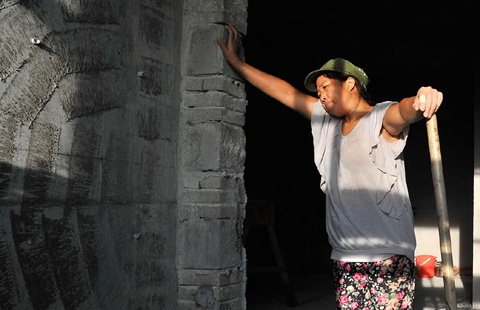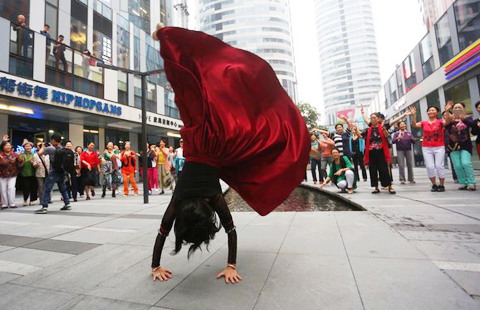Cherish HK's development, maintain long-term prosperity
Updated: 2014-10-02 17:04
(Xinhua)
|
|||||||||||
BEIJING - The illegal gatherings of the Occupy Central movement instigated by some people in Hong Kong do not promote democratic and constitutional development in the special administrative region. Instead, they are ruining it.
Occupy Central has triggered protests in Hong Kong's busiest areas for days since Sept. 28, leading to serious traffic disruption, temporary closures of schools and banks, and a slump in the benchmark Hang Seng Index, impacting the region's economic development and international reputation.
The illegal activities have undermined rule of law, which is Hong Kong's core value and one of its foundations.
The Aug. 31 decision made by the National People's Congress (NPC) Standing Committee on Hong Kong's electoral system is in line with the Basic Law and has heeded opinions from all walks of life in Hong Kong, thus carrying unshakable legal status and force.
The decision granted universal suffrage in the selection of the HKSAR's chief executive on the basis of nomination by a "broadly representative" committee.
A commentary carried by Thursday's People's Daily, the flagship newspaper of the Communist Party of China (CPC), said Occupy Central has put the political appeals of a handful of people above the law and hijacked the public opinion of Hong Kong for private ends.
It is understandable that different people may have different ideas about a desirable reform package. The government respects the people's rights to express their views.
The public is encouraged to express its aspirations peacefully, rationally and lawfully, and to respect and accommodate different views in society.
Occupy Central, however, is not a form of communication, but confrontation.
It will not force the central government to back down.
The movement shakes the core values of Hong Kong and its spirit of rule of law, disrupts social order, and hinders the realization of the prospective chief executive election through "one person, one vote" in 2017.
When meeting with a Hong Kong delegation late last month, Chinese President Xi Jinping said the central government's basic principle and policy toward Hong Kong has not changed and will not change.
The central government will unswervingly implement the policy of "One Country, Two Systems" and the Basic Law, and support the steady development of democracy in Hong Kong, Xi said.
As the "constitutional foundation" for implementing universal suffrage in the chief executive election, the NPC decision complies with Hong Kong's realities and is conducive to safeguarding national sovereignty, security and development and the region's long-term stability and prosperity.
People from all circles in Hong Kong should value the region's steady development and work to support the regional government's efforts to maintain social stability and ensure sound constitutional development.
Related Stories
'One Country', 'Two Systems' vital to HK 2014-10-02 11:25
HK police used tear-gas to provide safety for all 2014-10-01 07:42
HK is paying the price 2014-10-01 07:42
HK chief executive urges protest stoppage 2014-09-30 15:43
HK and mainland are a winning team 2014-09-30 07:07
Today's Top News
China to start direct yuan-euro trade
Protest disrupts life in Hong Kong
Slim waist fad causing problems
Americans split over role of gov't in their lives: Gallup
Spanish diplomat killed in Sudan
Independence of MH17 probe 'crucial'
Illegal assembly in Hong Kong leads to clashes
Aggrieved firms 'should go to court'
Hot Topics
Lunar probe , China growth forecasts, Emission rules get tougher, China seen through 'colored lens', International board,
Editor's Picks

|

|

|

|

|

|





